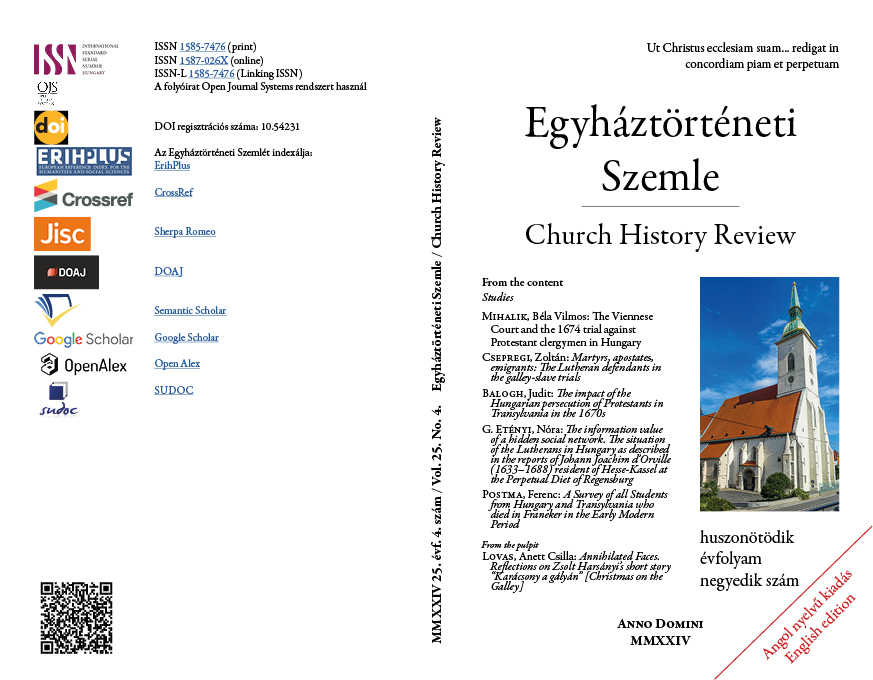Martyrs, apostates, emigrants: The Lutheran defendants in the galley-slave trials
DOI:
https://doi.org/10.54231/ETSZEMLE.25.2024.4.2Keywords:
emigration, peregrination, commemorative book, occasional publication, discussion paperAbstract
The surviving sources on the evangelical emigration triggered by the galley trials indicate a large population movement. The care and integration of refugees tied up considerable resources, their presence dominated public communications, and successfully integrated professionals built up enduring social networks. The emigrants in Hungary communicated very effectively and successfully played the role of a vocal minority. The popular genre of emigration is the occasional print, which is a very important source of prozopography, and the other common form of expression is the discussion paper. Most of the emigrants returned to Hungary after 1681, but within a few years many of them had put down roots and established a livelihood in a foreign land. The Hungarian theologians who had successfully integrated abroad were given the role of patron and bridge to support the next generation of Peregrinus with scholarships and contacts. The émigrés who remained in Germany played a key role as intermediaries in the circulation of books and the reception of new ideas in Hungary.
Downloads
Downloads
Published
Conference Proceedings Volume
Section
Categories
License
Copyright (c) 2025 Csepregi Zoltán (Szerző); Bakonyi-Tánczos Vera (Fordító)

This work is licensed under a Creative Commons Attribution 4.0 International License.
The author(s) reserve the copyright of their work.
The Church History Review does not restrict the rights of authors to place their manuscripts or manuscript versions on preprint servers or other hosting. This applies generally to the following formats.
- Submitted version
- Accepted version (manuscript accepted by the author)
- Published version (Version of Record)









